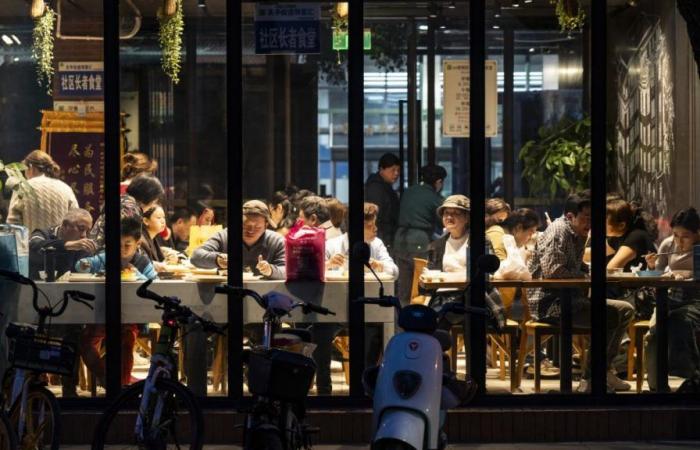SHANGHAI — Inside a soup kitchen for seniors in Shanghai, a worker with a sponge approached Maggie Xu, 29, as she finished her rice and broccoli. Xu ignored her.
According to the criteria of
“If you come at 12 o’clock, the aunts will give you less food,” Xu said, speaking in a low voice. After 1:30 p.m., they give away broth. They also begin to hover around—like the aunt with the sponge—rushing stragglers out the door.
Xu is familiar with the rhythms of Tongxinhui Community Kitchen because she eats there every day to save money. She has a good job as an accountant, but can’t shake a feeling of unease about her future.
“Only when you save money will you feel secure,” he said.
In these difficult economic times in China, many young people are unemployed, but they are not the only ones anxious. A devastating drop in the value of real estate, where most household wealth lies, has increased the feeling among young professionals like Xu that their situation is also precarious.
In Shanghai, some people are finding relief at subsidized community centers that once served mainly older people but now also attract younger crowds. The food is affordable and abundant. The dishes on offer, sometimes as cheap as $1.40, are packed with local specialties like eel in hot oil or steamed pork ribs.
The soup kitchens are privately run but subsidized by China’s ruling Communist Party and cater to elderly residents, offering discounted meals and delivery services.
At the dining room where Xu goes, diners over 70 get a 15 percent discount.
The soup kitchens date back to a dark era during Mao’s Great Leap Forward in the late 1950s, when the Communist Party replaced private restaurants with communal kitchens, said Seung-Joon Lee, an associate professor of history at the National University of Singapore.
There are 6,000 local canteens throughout the country, according to the official Xinhua news service. In Shanghai there are more than 300.
The reluctance to spend has become so common that it is contributing to the country’s economic problems and prompting top officials to urgently talk about building confidence.
If there’s one thing 31-year-old Deng Chunlong lacks, it’s confidence. Deng’s personal training business has suffered. Some customers have stopped coming altogether.
Deng has been turning to a food hall in Shanghai to cut back on his expenses. He stopped renting an apartment and sleeps in his Pilates studio.
“It seems like people aren’t willing to spend that much,” he said between bites of cauliflower and pork.






